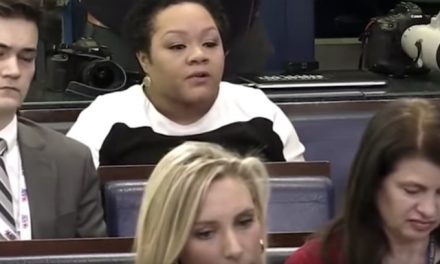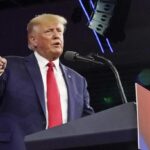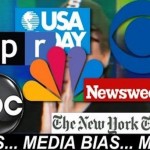Hillary Clinton’s 2016 presidential campaign threatened to fire staffers who raised concerns about the illegality of communications on her private email server.
Because of his key role in the investigation of Clinton’s unscrupulous email dealings, former Intelligence Community Inspector General (IG) Charles McCullough III, his family and his staffers were threatened with an intense backlash from the former secretary of state’s allies. In fact, the IG was informed that there would be dire consequences after the outcome of last November’s election as payback for his involvement in exposing another Clinton scandal.
“He claim[ed] the Clinton campaign put out word that it planned to fire him if Hillary Clinton won the 2016 election against Donald Trump,” DML News reported.
Evading Hillary’s wrath
Fortunately for McCullough, Trump won the election, and he was able to keep his job and family security.
“There was personal blowback,” the former federal intel watchdog told Fox News. “Personal blowback to me, to my family, to my office.”
Despite his two-plus decades of experience with the FBI, Treasury and intelligence community, McCullough’s exposure of Clinton’s illegal email activity was discounted by Democrats, who quickly politicized the investigation.
“In January 2016, after McCullough told the Republican leadership on the Senate intelligence and foreign affairs committees that emails beyond the ‘Top Secret’ level passed through the former secretary of state’s unsecured personal server, the backlash intensified,” Fox News’ Catherin Herridge, Pamela K. Browne and Cyd Upson reported.
For just doing his job, McCullough instantly got tagged by Democrats as a Republican informant.
“All of a sudden, I became a shill of the right,” McCullough recounted. “And I was told by members of Congress, ‘Be careful – you’re losing your credibility. You need to be careful – there are people out to get you.’”
Uneasy times
Even former Director of National Intelligence James Clapper – who recommended McCullough to the Obama administration for his position – was upset with him for uncovering the independent email findings on Clinton.
“[Clapper] said, ‘This is extremely reckless,’” McCullough – who was responsible for the 17 intelligence agencies – recalled. “And he mentioned something about – the campaign … will have heartburn about that.”
Clapper’s disgust over the findings were expressed during a personal meeting with McCullough just one year prior to the 2016 election.
“[Clapper] was as off-put as the rest of us were,” the inspector informed, noting that his team was marginalized following the meeting. “I was told by senior officials to keep [Clapper] out of it.”
More serious than the media let on …
The investigator was one of just a few people who actually saw the 22 top-secret emails from Clinton that were considered too classified to expose under any circumstances.
“There was a very good reason to withhold those emails … there would have been harm to national security.” McCullough insisted. “[S]ources and methods, lives and operations [could have been put at risk].”
It was disclosed that a number of Clinton’s email communications on her personal server were so classified that they were labeled as “above top secret” by intel experts – with some including Special Access Program (SAP) intelligence.
But WikiLeaks revealed documents proving that the Clinton campaign was quick to form talking points to discount McCullough’s findings while the investigation of 30,000 of her emails took place.
“Clinton only used her account for unclassified email,” Clinton’s campaign wrote in August 2015, according to Fox News. “When information is reviewed for public release, it is common for information previously unclassified to be upgraded to classified.”
McCullough was disturbed by the Clinton campaign’s response, which tried to bury and disqualify his findings from the very beginning.
“There was an effort – certainly on the part of the campaign – to mislead people into thinking that there was nothing to see here,” he stressed.
Besides the misinformation distributed by the Clinton campaign, McCullough criticized former President Barack Obama for trying to muddy his investigation through ambiguous language.
“McCullough … criticized President Obama for his statement that ‘there’s classified and then there’s classified,” Breitbart reported.
Increasing threats
Several months before the election, officials from the Democratic Party made their feelings about McCullough’s email probe known.
“In March 2016, seven senior Democrats sent a letter to McCullough and his State Department counterpart, saying they had serious questions about the impartiality of the Clinton email review,” Fox News informed. “However, McCullough was not making the decisions on what material in Clinton’s emails was classified – he was passing along the findings of the individual agencies who got the intelligence and have final say on classification.”
He was confident at this time that he was now up against a conspiracy by the Democratic Party to undermine him.
“I think there was certainly a coordinated strategy,” McCullough expressed.
One confrontation that he had with Sen. Diane Feinstein (D-Calif.) just six weeks prior to the election came to mind, as she tried to apply pressure on federal investigator to respond to an intimidation letter penned by Democrats that she had co-signed.
“I thought that any response to that letter would just hyper-politicize the situation,” McCullough reasoned. “I recall even offering to resign, to the staff director. I said, ‘Tell [Feinstein] I’ll resign tonight. I’d be happy to go. I’m not going to respond to that letter. It’s just that simple.”
McCullough and another senior government investigator on the email probe were singled out and threatened more extensively as Election Day approached.
“It was told in no uncertain terms – by a source directly from the campaign – that we would be the first two to be fired — with [Clinton’s] administration,” he recalled. “That that was definitely going to happen.”
Contrary to the partisan bias narrative that Democrats were trying to push, McCullough insisted that he was merely attempting to execute his job duties.
“I was – in this context – a whistleblower,” the government watchdog continued. “I was explaining to Congress – I was doing exactly what they had expected me to do – exactly what I promised them I would do during my confirmation hearing … This was a political matter, and all of a sudden, I was the enemy.”
Mounting pressure was also heaped on McCullough by Patrick Kennedy – a former member of Clinton’s State Department team – from the onset of the probe.
“State Department management didn’t want us there,” McCullough stated. “We knew we had had a security problem at this point. We had a possible compromise.”
Even though an excess of 2,100 classified emails have been documented on Clinton’s personal email server – which was solely used for government business – not one single person has yet been charged for taking part in that illegal activity.
When asked what would have happened to him if he were caught using his private email server to conduct classified government communications, McCullough had little doubt where he would be today.
“I’d be sitting in Leavenworth right now,” he impressed.
—-
Copyright American Family News. Reprinted with permission.


















Recent Comments